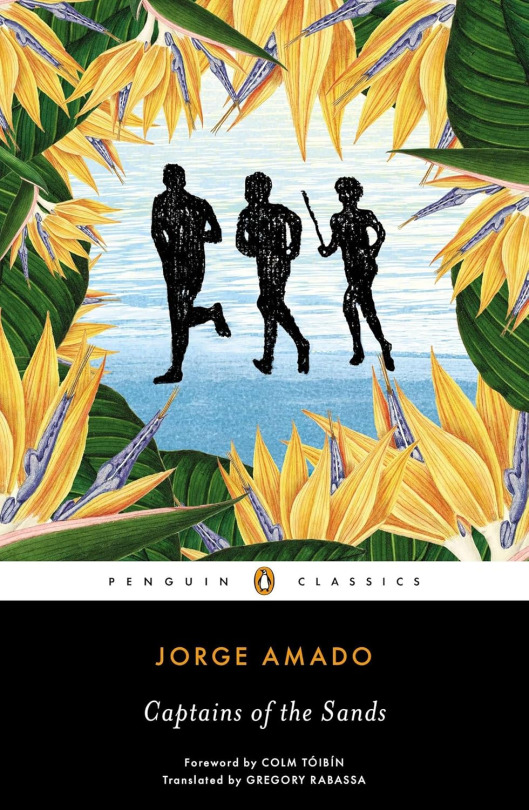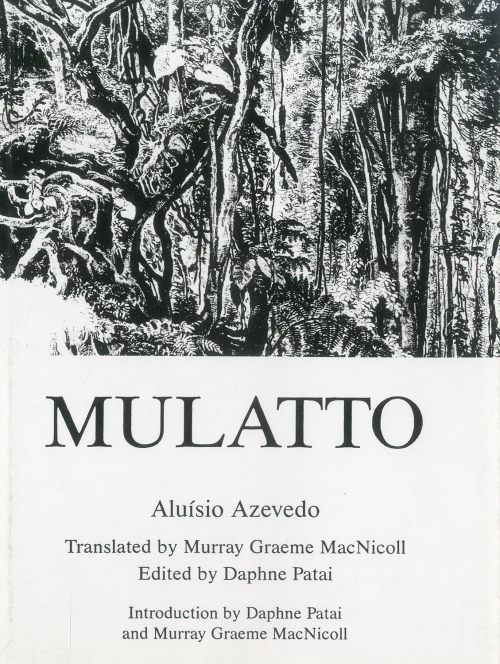Two Husbands, One Ghost
Two Husbands, One Ghost

"BRIEF REPORT (APPARENTLY UNCALLED FOR) OF THE CONTROVERSY THAT SPRANG UP CONCERNING THE AUTHORSHIP OF THE ANONYMOUS POEM THAT CIRCULATED FROM TAVERN TO TAVERN, IN WHICH THE POET LAMENTED THE DEATH OF V ADINHO, WITH THE TRUE IDENTITY OF THE UNKNOWN BARD, FINALLY REVEALED ON THE BASIS OF CONCRETE PROOFS"
About the Book
Title: Dona Flor and Her Two Husbands Author: Jorge Amado Published: 1966 Original Title: Dona Flor e Seus Dois Maridos
Summary
Dona Flor becomes a widow after the death of her reckless and charming husband, Vadinho. Later, she remarries Dr. Teodoro, a respectable and stable man. However, things take an unexpected turn when Vadinho returns as a ghost, forcing her to navigate between her two very different husbands. The novel is a satirical and playful exploration of passion, reason, and desire.
P.S. There’s a famous movie adaptation from 1976, and it was also adapted into a novela!
Key Themes
Desire
Morality vs. Passion
Supernatural elements
Female Independence
More Posts from Carnivalofstories and Others
Jaguar

"Wildcat's a beautiful thing! You ever seen one? When there's a little stirrin' in the ban1boo thicket, just a tremblin' for no reason: then that's one, eh, that could be one"
About the Book
Title: Jaguar and Other Stories Author: João Guimarães Rosa Published: - Original Title: -
Summary
This book is a compilation of stories by Guimarães Rosa, blending philosophical reflections and regionalism. Each story takes the readers to the backlands.
Key Themes
Folklore
Fate
Man and nature
This book was burned during the military dictatorship

"In the mysterious night of the macumbas the drums resound like trumpets of war."
About the Book
Title: Captains of the Sand Author: Jorge Amado Published: 1937 Original Title: Capitães da Areia
Summary
Captains of the Sand is set in the city of Salvador and follows the story of a group of orphaned boys living on the streets. They survive through petty theft and share a deep sense of brotherhood. Their leader is Pedro Bala, a boy who is protective of his gang.
The book was banned during the Brazilian military dictatorship for its portrayal of poverty and its perceived communist ideas. It was even burned in a public square in November of 1937, alongside other books (mostly from Jorge Amado).
P.S. There are many things you will not agree with in the book, and it contains an explicit rape scene.
Key Themes
Poverty
Injustice
Social Exclusion
Survival
Finding Your Destiny

"The boy could see in his father’s gaze a desire to be able, himself, to travel the world—a desire that was still alive, despite his father’s having had to bury it, over dozens of years, under the burden of struggling for water to drink, food to eat, and the same place to sleep every night of his life."
About the Book
Title: The Alchemist Author: Paulo Coelho Published: 1988 Original Title: O Alquimista
Summary
The Alchemist follows the journey of Santiago, a shepherd from Spain who dreams of finding a hidden treasure near the Egyptian pyramids. His quest takes him to many places, where he encounters wise mentors and people who help him along the way.
Santiago learns about the importance of following his heart and pursuing his personal legend. The story is very spiritual and talks a lot about philosophy.
Key Themes
Destiny
Dreams
Self-discovery
Spiritual enlightenment
Did she cheat or not?

"Capitu, in spite of those eyes the devil gave her … Have you noticed her eyes? They’re a bit like a gypsy’s, oblique and sly."
About the Book
Title: Dom Casmurro Author: Machado de Assis Published: 1900 Original Title: Dom Casmurro
Summary
Dom Casmurro follows the story of Bentinho, a man who reflects on his past, particularly his relationship with Capitu. He raises questions about whether his suspicions regarding Capitu's fidelity are true or merely the result of paranoia. Additionally, they have a son who Bentinho believes does not resemble him at all.
Bentinho is an unreliable narrator, as he is the sole person telling the story, and the author makes us question whether he is telling the truth or not.
Key Themes
Jeaslisy
Memory vs. Perception
Love and Trust
Unreliable Narrator
Racial Inequality and love

"On a sultry and oppressive day, the decadent city of Sao Luis Maranhao lay sprawled in the tropical heat."
About the Book
Title: Mulatto Author: Aluísio Azevedo Published: 1881 Original Title: O Mulato
Summary
The book addresses racial inequality in 19th-century Brazil. It was one of the first novels to discuss miscegenation and its cultural and social effects.
Mulatto follows the story of Raimundo, a young mulatto man who seeks to rise in society. Things get complicated when he falls in love with Rosa, a white aristocratic woman. Their forbidden love faces intense social opposition, leading to a tragic conflict where race, class, and desire collide.
Key Themes
Racial inequality
Social class
Colonial Brazil
America

"Who has taught you, white warrior, my brothers' tongue? From where have you come to these woods, which have never seen another warrior like you?"
About the Book
Title: Iracema Author: José de Alencar Published: 1865 Original Title: Iracema
Summary
The story follows the romance between Iracema, an indigenous woman, and Martim, a Portuguese colonizer. Iracema's name is an anagram of America. There is a lot of critique of colonialism in this story, as Martim represents the colonizers (the Portuguese).
Key Themes
Colonialism
Heritage
Cultural clash
National Identity
Love and Revenge

"Convinced that all those who professed love for her, without exception, sought only her wealth, Aurelia reacted to this affront by responding to these individuals in kind."
About the Book
Title: Senhora: Profile of a Woman Author: José de Alencar Published: 1875 Original Title: Senhora
Summary
Senhora follows Aurélia Camargo, a young woman who inherits a fortune and uses it to buy back her former fiancé, Fernando Seixas, who once abandoned her for a wealthier match. As her plan for revenge unfolds, Aurélia finds herself torn between love and pride.
P.S. There is a happy ending.
Key Themes
Love vs. money
Female agency
Honor
Idealist vs. reality
Clove and Cinnamon

“Isn’t that what it is? Love—the most wonderful and most terrible thing in the world.”
About the Book
Title: Gabriela, Clove and Cinnamon Author: Jorge Amado Published: 1958 Original Title: Gabriela, cravo e canela
Summary
The book is set in the 1920s in Ilhéus, a town experiencing a boom in the cacao industry. The novel follows Gabriela, a migrant worker who captivates the bar owner, Nacib, and from this, their love story unfolds. As with most of Jorge Amado's works, it is a highly sensual story.
P.S. There are at least three TV adaptations of this novel in Brazil. It is a very popular story.
Key Themes
Desire
Power dynamics
Gender roles
Social change
Tradition vs. Progress
A true story

"It is truly regrettable that in these times we do not have a Maudsley, who knew the difference between good sense and insanity, to prevent nations from committing acts of madness and crimes against humanity."
About the Book
Title: Backlands: The Canudos Campaign or Rebellion in the Backlands Author: Euclides da Cunha Published: 1902 Original Title: Os Sertões
Summary
This book is a retelling of the War of Canudos (1896–1897), which took place in the state of Bahia. The writer, Euclides da Cunha, was a correspondent for the Brazilian newspaper O Estado de S. Paulo. It is considered the first livro-reportagem (reportage book) in Brazil. Mixing science and literature, the story narrates the war between the republican army and the sertanejos.
Key Themes
True story
Resistence
War
Brazilian backlands
Hour of the Star

"This story takes place during a state of emergency and a public calamity. It's an unfinished book because it’s still waiting for an answer. An answer I hope someone in the world can give me. You? It’s a story in Technicolor to add a little luxury which, by God, I need too. Amen for all of us."
About the Book
Title: Hour of the Star Author: Clarice Lispector Published: 1977 Original Title: A Hora da Estrela
Summary
Macabéa is a typist living in the slums of Rio de Janeiro. She is ugly and unloved. She loves movies and her horrible boyfriend. Her story is told by Rodrigo S.M., a narrator who spirals into philosophical musings about fate, poverty, and the meaning (or meaninglessness) of life as he unravels Macabéa’s existence.
This book will disturb you. It might make you feel horrible. And yet, you won’t be able to look away.
P.S.: The cockroach scene. You will never forget it. No matter how much you try.
Key Themes
social commentary
disturbing
identity
poverty
-
 healingkillingthought liked this · 3 months ago
healingkillingthought liked this · 3 months ago -
 carnivalofstories reblogged this · 3 months ago
carnivalofstories reblogged this · 3 months ago

Celebrating Brazilian stories through book recommendations
22 posts